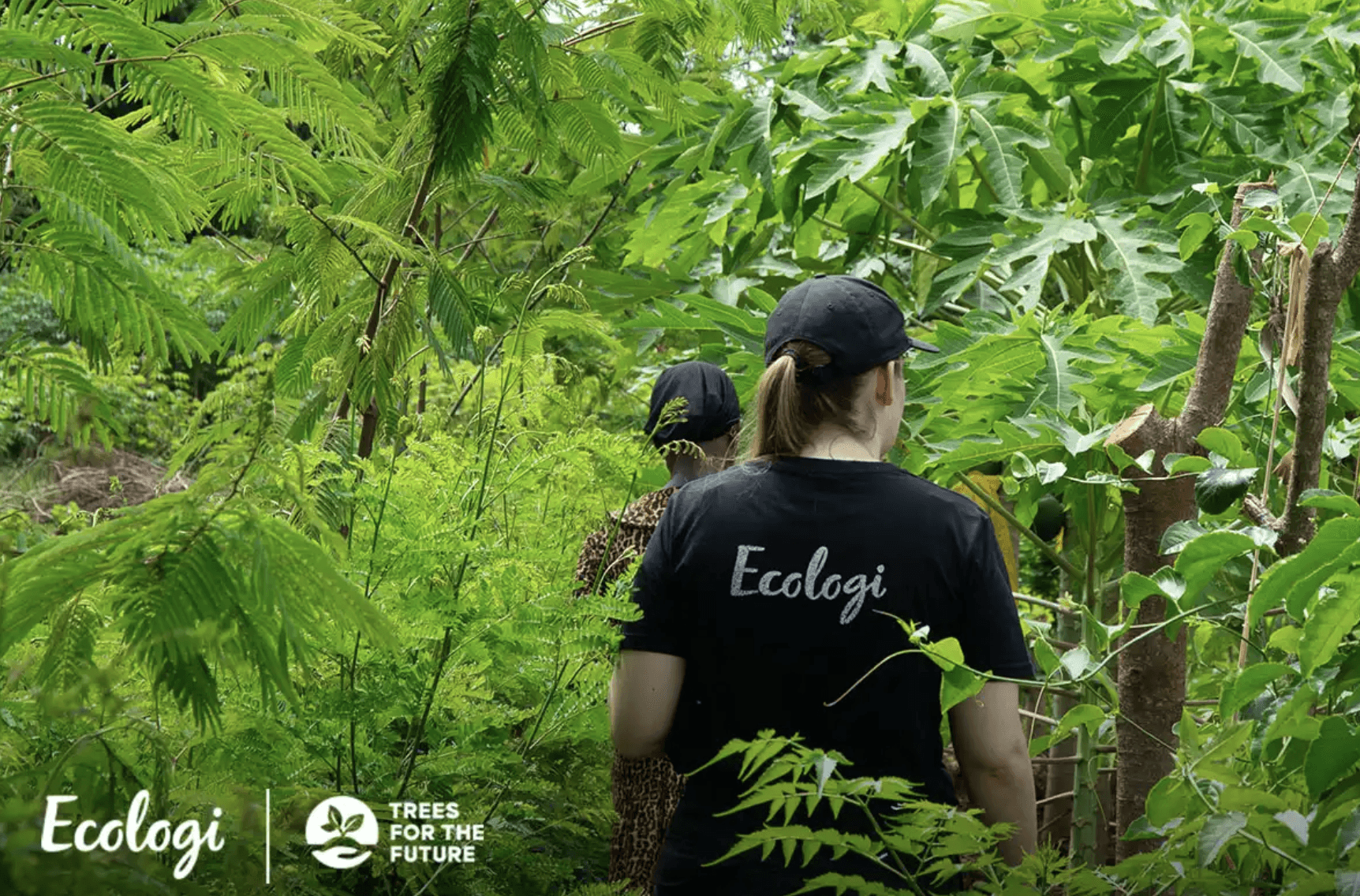Reforestation
Planting forest gardens in Busoga, Uganda
Why support agroforestry?
As is the case for the majority of farmers around the world, growing a diverse mix of crops reduces the risk of loss of income if a certain crop fails, for example due to drought or disease. Providing farmers with training and equipment to grow a range of crops helps protect their income should one crop fail.
In Uganda’s Namayingo District, subsistence farmers are primarily growing one crop – cassava, a drought-tolerant starchy root vegetable. While cassava brings several health benefits, relying so heavily on one crop means people are exposed to nutrient deficiencies. Teaching farmers about how to grow multiple crops on their land, and giving them the tools and seeds to do so, enables them to provide a healthier diet for their families.
There has also been a rapid decline in tree and vegetation cover in this area in recent decades. Trees are cut for charcoal, boat construction and expansion of conventional agricultural systems. This, in combination with monocropping of cassava, has led to soil erosion and depletion of soil fertility. Implementing sustainable agroforestry techniques not only preserves soil health but actively improves it, reintroducing nutrients to the soil to ensure healthy crops can be grown in it for decades to come.
Project timeline
21 May 2025

Site Visit to Busoga 2 - midway through the project
Ecologi and the businesses we work with have supported Trees for the Future’s Forest Gardens programme since August 2021, and earlier this year, some of the team travelled to Uganda to see some of the impact.
The Forest Gardens were halfway through the 4-year programme. Despite having 2 years to go before the farmers in this project graduated, the land was already well on its way to being transformed. What was once mostly bare soil, with few crops growing and very little wildlife, was already a mosaic of permagarden beds, intercropping, alley cropping, fruit trees and more, with the all-important green wall growing around the perimeter of each Forest Garden.
12 Jul 2024

Farmers begin to harvest diverse crops from the Forest Gardens, bringing a much-needed source of income to families, as well as nutritious food.
10 Jan 2024

400 farmers complete their Forest Garden Planning and Design training!
1 Jan 2024

Tools were distributed to farmers to enable them to better manage their land. Nurseries were established to begin growing trees to be planted within and around the edge of the Forest Gardens.
1 Nov 2023

Project begins, engaging with 400 local farmers to plant a total of 1.6 million trees. Local groups were formed for farmers to support their neighbours.
How do we rate this project?
This project is contributing towards several of the UN's Sustainable Development Goals, providing benefits for people, the climate, and nature alike. Trees for the Future's Forest Garden programme was named a UN World Restoration Flagship in 2024, highlighting the impactful nature of the projects implementing this strategy.

The project aligns with this SDG because the benefits of the Forest Garden will enable additional source of revenue through restoration of the land.

The project will provide access to nutritious food changing we grow, share and consume our food.

Farmers are given a choice of crops to plant based on what grows well in the region, so they can grow food they want to eat and sell ensuring healthy lives and promote well-being for all at all ages.

Through this project, farmers receive education regarding more sustainable and profitable land management.

Farmers, no matter whether they are male or female, are all treated equally through this proejct. Female farmers are empowered to take control of their household finances and provide an income for their families.

Working with 400 farmers to plant 1,600,000 trees over the next 4 years will employment opportunities, aligning with this SDG

This project is equipping farmers with the skills and equipment they require to increase their household income and provide for their families.

Farmers trained by this programme are bringing their produce to markets, selling to members of their communities, providing a more varied and reliable source of food for their communities.

The trees within the Forest Gardens capture carbon from the atmosphere, as well as keeping moisture trapped in the local environment, reducing the temperature and dryness.

Planting forest gardens in Busoga promotes sustainable management of forests and halt biodiversity loss.
About
Live
2023
Agroforestry
1
2
3
4
5
8
10
11
13
15
Fund this project
Funded directly through our Forests & Landscapes fund in our marketplace. Alternatively speak to a climate expert to support your wider climate action strategy.





